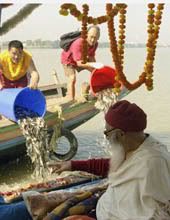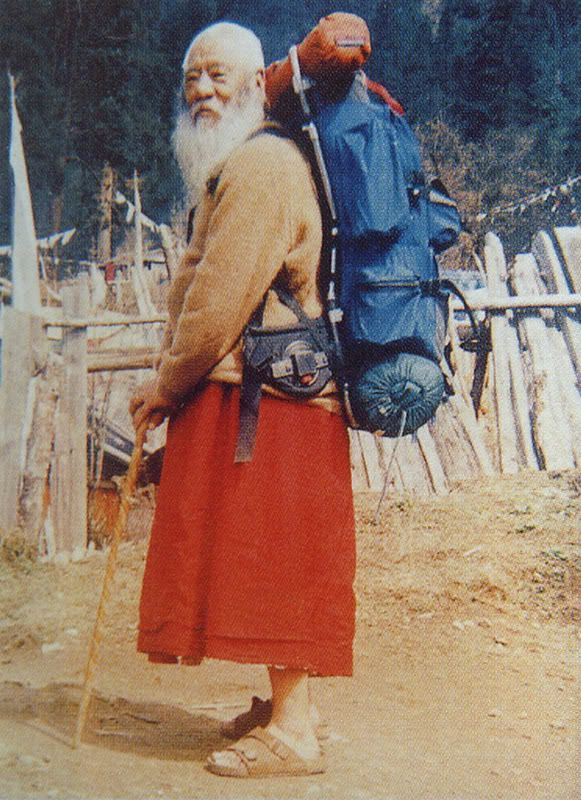byang phyogs mun pa'i smag rum na
File:http://i141.photobucket.com/albums/r65/zpariah29/Generalpostcardfront.jpg
File:http://i141.photobucket.com/albums/r65/zpariah29/Generalpostcardback.jpg
Check it out at: [[1]]
Order today at:
[[2]]
File:http://i141.photobucket.com/albums/r65/zpariah29/11111.jpg
Chatral Rinpoche, is one of the most revered spiritual figures in South Asia and is believed by many to be a Buddha in person. Father Thomas Merton famously remarked in 1968 that he was "the greatest man I ever met." He is the Vajra Regent of Dudjom Rinpoche's lineage and the Senior Master of the Longchen Nyingthig lineage of the Great Perfection. Like his root teacher Dudjom Rinpoche, Chatral Rinpoche's teachings are luminious and brilliant, with the potential to liberate fortunate beings on the spot.
[[Image:
 ]]
]]
He rescues millions of endangered animals each year and has been a strict vegetarian for over forty-five years. Now in his 90's, he is as active as ever, helping humans and animals alike with an unfathomably deep compassion.
This is the first English-language book of this living legend and includes his biography and autobiography, six of his essays, five prayers he composed, an exclusive interview, and 16 pages of photos from throughout his life.
[[Image:
 ]]
]]
Reviews:
"Fame and renunciation rarely go hand in hand. However, in the Tibetan Buddhist world, occasionally there are hermits who become revered and renowned precisely for the integrity of their renunciation. Chatral Rinpoche, a ninety-three-year-old Nyingma master, has exemplified this tradition throughout his life. Referred to by Thomas Merton as “the greatest man I ever met” and frequently described as the greatest living Dzogchen master, Chatral Rinpoche’s fame has spread despite the lack of any publications devoted to him. Now, his inspiring life and teachings are available in Compassionate Action(Snow Lion Publications, 2007), a collection of his translated teachings and compositions edited by Zach Larson. The book opens with a brief biography and continues with chapters exploring different aspects of the bodhisattva practices for which Chatral Rinpoche has become well-known, such as vegetarianism, his annual practice of freeing thousands of captured fish into the Bay of Bengal, his construction and veneration of stupas, and his training and guidance of the next generation of Nyingma lamas." --Buddhadharma Magazine (Spring 2007)
"In his Asian Journal, Thomas Merton described Tibetan Buddhist lama Chatral Rinpoche as a 'very impressive person...so obviously a great man'...Now 93, Chatral Rinpoche is often described as the greatest living dzogchen master. Much of his life has been spent in retreat; his public teachings are rare. Yet he has gained fame on the strength and integrity of those teachings and the example of his life. It certainly is not a fame gained from writing books because, until now, there never has been one, although he has been mentioned in many…Compassionate Action...is the first book that collects a few of Rinpoche's translated teachings and writings...Chapters explore aspects of the spiritual life for which Rinpoche…has become known, including his eloquent and clear teaching on vegetarianism…Chatral Rinpoche doesn’t mince words, but that directness is imbued with the deep compassion and wisdom that inspired Merton nearly 40 years ago." --Arkansas Democrat Gazette
Compassionate Action is the first English-language book of Himalayan yogi Chatral Rinpoche, who has influenced Western Buddhist consciousness for decades and was dubbed "the greatest man I ever met" by Father Thomas Merton in 1968. Presenting Chatral Rinpoche's biography and autobiography, six of his essays, five prayers that he wrote, an exclusive interview, and color photographs from the different phases of his life, Compassionate Action is a "must-read" for anyone seeking to learn from this quintessential wise and holy man. "Conscious abstention from hunting and killing living beings, besides inspiring others to do the same, are actions behooving the kind-hearted and pious. For instance, the milk of human kindness requires us to not harm migratory birds in any way, such as casting stones or nets or shooting them while they are resting for brief moments in the course of their long journey from one country or continent to another. On the contrary, we should provide help to them in all possible ways before they reach their final destination." Highly recommended especially for students and practitioners of Buddhism. -—Midwest Book Review, July 2007